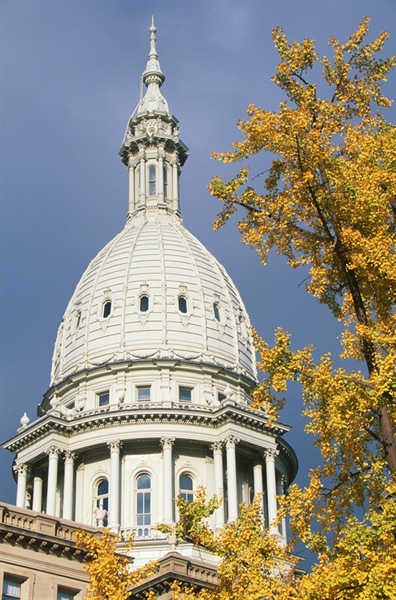
(LOS ANGELES) – Marijuana-related businesses in Michigan across the country have struggled with the question of how to bank the money they bring in from this cash-only business.
From the rescission of the industry-friendly “Cole Memo” to the treasury secretary’s seemingly pragmatic stance, questions remain: Can any financial services be offered to the industry in the current federal regulatory environment? Is there an alternative to the cash-only business model?
East Carolina University business professor Brenda Wells told the National Conference of State Legislatures (NCSL) that marijuana was made illegal in the United States in 1937 on the popular belief (as portrayed in the propaganda film Reefer Madness) that smoking one joint can make a person insane, despite opposition by the American Medical Association (AMA) and its recognition in American medicine since 1850.
It was then classified as a Schedule I drug, which banned any use or research on the substance. While banned in federal law, 31 states and jurisdictions now permit medical marijuana, nine of those also permit adult recreational use.
Dustin McDonald, vice president for government relations for Weedmaps, said the federal Racketeer Influenced and Corrupt Organizations (RICO) Act and Banking Act places bankers in a cumbersome position for providing banking services for customers in the $11 billion state legalized cannabis industries.
While an Obama-era memo signed by Deputy U.S. Attorney General James Cole in 2013 lays out a policy of federal non-interference with state marijuana laws so long as public health and public safety are not threatened, the Cole Memorandum was rescinded by current U.S. Attorney General Jeff Sessions in January 2018. However, the 2018 consolidated appropriations act signed by President Donald Trump in March continues to prevent Sessions from enforcing federal marijuana laws where states have legalized it, said McDonald.
McDonald indicated that reclassifying marijuana from a Schedule I to a Schedule II or higher controlled substance would free up banking for state legalized marijuana uniformly. A “
Andy Guggenheim, senior counsel for the American Bankers Association, said his association is looking for ways for banks to provide full services to the marijuana
California Sen. Robert Hertzberg said a solution would be to use non-FDIC insured banks by establishing a separate limited charter bank system outside the FDIC. The limited charter banks would pay government taxes and fees; provide fee-based services; allow transactions by special checks
Michael Correia, director of government relations for the National Cannabis Industry Association (NCIA), said, “NCIA businesses want certainty . . . Proposed legislation that addresses all their issues
“It is important for Congress to hear from the states,” said Correia.
In response to an audience member, Hertzberg said he expects it to take a year to set up his charter banking system in California.
Correia told another audience member that state legalized marijuana will provide $1.6 billion to $5 billion per year to the federal government within 10 years. McDonald said the industry already provides $3 billion per year to the federal government.
Hertzberg told another audience member that his bill does not address credit needs: “It’s a (bandage); it solves part of the problem.” McDonald said Canada’s program will start this summer, and that Canadian legal marijuana businesses may be able to come in to provide credit to their American counterparts.